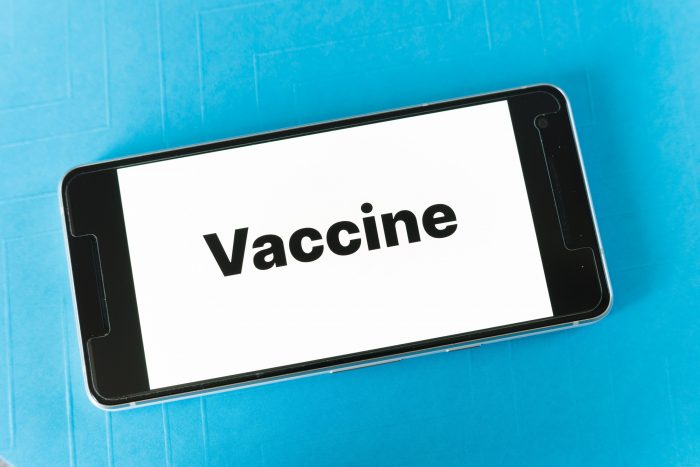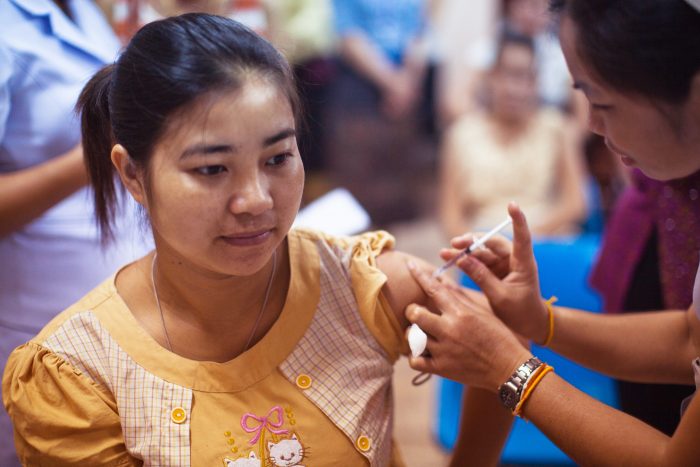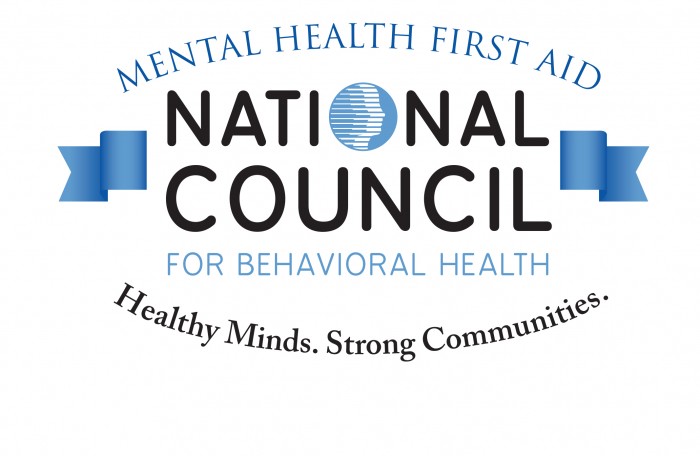Jack Phillips
Gov Wolf: All Adults in PA are Eligible Tomorrow to Schedule COVID-19 Vaccination Appointments
Harrisburg, PA – Governor Tom Wolf and the COVID-19 Vaccine Task Force announced that effective tomorrow, Tuesday, April 13, all Pennsylvania adults will be eligible to schedule an appointment for the COVID -19 vaccine.
“We need to maintain acceleration of the vaccine rollout, especially as case counts and hospitalization rates have increased,” Gov. Wolf said. “Therefore, just as President Biden has brought forward universal adult access to vaccines from May 1 to April 19, we are moving Pennsylvania’s timeline of universal adult access to April 13.”
The Department of Health noted that there is ongoing appointment availability in many parts of the state even as Phase 1A and B continue and 1C begins today. With the change in eligibility, those in Phase 2 will become eligible, opening up vaccines to all. Our ongoing initiative with the Area Agencies on Aging to provide assistance to vulnerable seniors for accessing vaccine will continue, as will our other equity initiatives.
“Everyone needs and should be afforded the opportunity to access the vaccine as soon as possible,” Acting Sec. of Health Alison Beam said. “And, this change provides earlier access for many, including college students increasing the likelihood of completion of two-dose regimens prior to leaving campus for the summer. It also means simpler, streamlined operations for vaccine providers that no longer need to check eligibility of people making appointments.”
To date, Pennsylvania providers have administered more than 6 million vaccines and the state is ranked among the top 20 states for first-dose vaccinations. More than 2.4 million Pennsylvanians are fully vaccinated.
Pennsylvanians can find providers on the COVID-19 Vaccine Provider Map here.
“Please get vaccinated,” said Sen. Art Haywood.
“It is precisely the bipartisan cooperation of this Joint Task Force coupled with the tremendous work of our provider network that has allowed our Commonwealth to make rapid progress in our vaccine rollout, now expanding eligibility so that every Pennsylvanian who wants to be vaccinated has the opportunity to do so immediately,” said Sen. Ryan Aument. “Because we have maintained our commitment to residents within phases 1A and 1B, we can now further accelerate the rollout and protect our communities, particularly by ensuring that college students can be vaccinated before returning home to their families for the summer.”
“The administration, our task force, and all of our local providers have collaborated together to achieve the goal put forth by President Biden,” said Rep. Bridget Kosierowski. “With the number of COVID-19 positive cases continuing to rise some areas of our state, it is imperative that everyone who wants to schedule an appointment for a vaccine can have that opportunity to do so.“
“I’m pleased we are able to speed up eligibility so that all Pennsylvanians who want a vaccine can schedule one,” Rep. Tim O’Neal said. “Western Pennsylvania has hosted a number of vaccine clinics in recent days where supply has outstripped demand. We were able to get approval to expand eligibility at one of these clinics, but it only makes sense to open vaccinations to all. The work of the task force has shown when all parties work in a collaborative fashion, we can accomplish a lot in a short timeframe.”
“This further-accelerated plan will move us much closer to the goal of vaccinating Pennsylvanians as quickly and equitably as possible,” Gov. Wolf said.
MEDIA CONTACTS:
Lyndsay Kensinger, Governor’s Office
Barry Ciccocioppo, Health
Wolf Administration Reminds Businesses To Ensure A Safe Workspace For Employees And Customers Alike
DOH Announces Enhanced Services For Pennsylvania WIC Program, Transition To New Providers
Urge Your Senators to Cosponsor the Mental Health Access Improvement Act
Advocacy Alert
Do you believe older adults and individuals with disabilities should have easier access to mental health services? (We certainly do).
Currently, marriage and family therapists and licensed mental health counselors are not eligible Medicare providers, despite the important role they play in delivering treatment, recovery, and prevention services.
However, there is new legislation to change that – and it needs your support!
On March 18, Senators John Barrasso (R-WY) and Debbie Stabenow (D-MI) reintroduced the Mental Health Access Improvement Act (S. 828). This legislation would allow marriage and family therapists and licensed mental health counselors to participate in the Medicare program, dramatically expanding access to care for older adults and individuals with disabilities.
This simple change would immediately increase patients’ access to needed care, particularly in underserved communities, rural areas, and areas with a mental health workforce shortage.
Thank you to those of you who already took action to ask your Representatives to cosponsor the House version.
Sincerely,
 Chuck Ingoglia
Chuck Ingoglia
President and CEO
National Council for Behavioral Health
Pennsylvania Accelerating Vaccine Strategy

DOH: Over 5.1 Million Vaccinations To Date, First Doses Of Vaccine To 31% Of Population
Wolf Administration Launches Portal To Ensure High-Risk Populations Have Access To Opioid Reversal Medication
Capitolwire: ARP Federal Aid Looms as Factor in State Budget Discussions
By Robert Swift, Staff Writer, Capitolwire
HARRISBURG (March 17) – A clearer picture is emerging of what Pennsylvania can anticipate in federal aid under the newly enacted American Rescue Plan (ARP).
The $1.9 trillion spending plan signed by President Biden last week is the third round of relief from Washington since the COVID-19 pandemic overwhelmed the nation one year ago.
The Commonwealth and local governments stand to receive billions of federal dollars that can be spent for various purposes during a three-year period.
Schools and higher education institutions in Pennsylvania are due to receive large chunks of federal aid. So are private businesses in Pennsylvania struggling to recover from the accompanying economic recession.
ARP provides aid to individuals and families in the form of recovery rebates and tax credits for children and dependent care assistance and continuing unemployment compensation.
The broad aid categories under ARP include transportation, housing, child care, health and human services which includes COVID-19 vaccination programs, agriculture, food and nutrition and veterans’ affairs, according to an analysis by the House Democratic Appropriations Committee (HDAC).
There are also big programs for which Pennsylvania’s aid share hasn’t been calculated yet: Medicare, Nursing facilities and the Children’s Health Insurance Program.
Gov. Tom Wolf highlighted ARP’s impact for families and individuals in Pennsylvania when the plan passed Congress.
“It will provide direct payments to more than 5.5 million households,” said Wolf. “It will provide $671 million in emergency rental assistance. It will extend federal unemployment insurance benefits that will help more than 400,000 Pennsylvanians make ends meet.”
ARP will provide nearly $7.3 billion in direct aid to state government for such purposes as recouping revenue losses due to fighting the pandemic, extra pay for essential workers and water, sewer and broadband infrastructure.
The issue of ARP aid surfaced Wednesday as the House Appropriations Committee approved two shell bills, House Bill 935 and House Bill 936, to serve as vehicles for the Fiscal Year 2021-22 state budget.
House Appropriations Majority Chairman Stan Saylor, R-York, said the goal is to get the new federal dollars out as soon as possible as part of the next budget.
“This is a historic opportunity, said Appropriations Minority Chairman Matt Bradford, D-Montgomery. “We should be smart in looking at it.”
Bradford suggested giving priority to addressing inequities in education, long-term care for senior citizens, the hourly minimum wage and poverty exemptions for the state personal income tax.
Saylor responded that discussions about ARP aid have to take into account large amounts of unauthorized overspending by the state Department of Human Services in the current budget.
The Senate Appropriations Committee had rescheduled its state budget hearings to run later in March and April in order to account for the coming aid from Washington.
The plan’s impact will be discussed during the hearing for Budget Secretary Jen Swails scheduled for April 22, said appropriations panel executive director John Guyer.
Under ARP, the direct aid to local governments in the Keystone State totals $6.1 billion. Direct local aid was missing from the first two federal COVID relief packages enacted last year. The state’s 67 counties will split an estimated $3 billion from that pot.
“The American Rescue Plan offers counties the flexibility to address a range of local needs, from covering increased expenditures related to the pandemic, to replacing lost revenues, to providing further assistance within their communities, to investing in infrastructure such as broadband,” said Lisa Schaefer, executive director of the County Commissioners Association of Pennsylvania.
“This is a significant amount of money,” said Rick Schuettler, executive director of the Pennsylvania Municipal League.
Schuettler said it can be used to make up for lost revenue, undertake water, sewer and broadband infrastructure projects and helping local businesses hurt by the pandemic.
The League plans to provide guidance to municipalities outlining best practices for spending the money coming from Washington.
Under ARP, Pennsylvania elementary and secondary schools will receive an estimated $5 billion for use through September 2023. There is aid for private schools, special education students and homeless students.
ARP is placing greater emphasis on addressing learning loss and remedial education needs due to the pandemic and students’ academic, social and emotional needs, according to the HDAC analysis.
This translates in about $900 million going to school districts and charter schools to address learning loss as well as aid for summer enrichment and afterschool programs and $109 million dedicated for special education.
“[ARP] provides dedicated education funding that will help schools make in-person instruction as safe as it can be, while intensifying support and instruction for students who have experienced delayed learning,” said Chris Lilienthal, spokesman for the Pennsylvania State Education Association.
Lilienthal added that ARP will ensure schools don’t have to resort to layoffs of educators because of a decline in local tax revenue collections and other pandemic impacts.
Higher education institutions in Pennsylvania stand to receive $1.3 billion in direct federal aid.
“The System is projected to receive a total of $219 million,” said David Pidgeon, spokesman for the Pennsylvania State System of Higher Education. “Of that, half is to go to students for emergency aid and the other half can be used by the universities to address COVID needs.”
Businesses will receive aid in a number of categories: economic disaster loans, restaurant revitalization grants, grants to “shuttered venues” and economic adjustment assistance. The Pennsylvania share of business aid has yet to be determined.
Under the umbrella category of health and human services, Pennsylvania is to receive $1.2 billion for child care programs, $34 million for Head Start, $5.7 million for family violence prevention, $46 million for a community mental health services block grant, $47 million for a substance abuse prevention and treatment block grant and $260 million for low-income energy assistance.
In transportation, Pennsylvania will receive $1.25 billion in federal transit administration grants.
-30-
Pandemic-Related Nonprofit Unemployment Claims Survey – Response Requested
RCPA has been and continues to work with the Pennsylvania Association of Non-Profit Organizations (PANO) on unemployment issues that have arisen during the pandemic. Specifically, the largest issue we have been working on is self-insured unemployment compensation claims. PANO has asked RCPA to circulate an unemployment claims survey to our members. RCPA is pleased to work with PANO on this issue.
PANO has sent the information below to various non-profit entities. In addition, you will find the link to the unemployment survey. Please take the time to fill this survey out and share the survey with other non-profits in your area.
PANO Information
Since the pandemic started, more than 33% of nonprofits in the United States are in danger of closing within two years in the aftermath of COVID-19 (2021 Candid and the Center for Disaster Philanthropy). As of December 2020, an estimated 60,000 nonprofit employees have been laid off in Pennsylvania.
While many nonprofits found relief from the federal government through various federal programs, loans, and grants, the Commonwealth of Pennsylvania has not yet provided direct, designated relief clearly needed by their partners in the nonprofit sector, who provide state-mandated and grassroots services for our most vulnerable residents.
One way the state can provide this direct relief is by offering 100% reimbursement for COVID-19-related unemployment compensation claims to all nonprofits, particularly reimbursable organizations (who pay the state back on a claim-by-claim basis).
If you have had any unemployment claims at all, please participate in this 10-question survey and fill in as many fields as possible, including, but not limited to, your status as a contributory vs. reimbursable employer. We are looking for information from nonprofits of all sizes, big and small, so please pass this on to any of your nonprofit colleagues who can contribute.
Together, we are strong! Let’s use our collective voice to make changes in Pennsylvania’s unemployment system.














